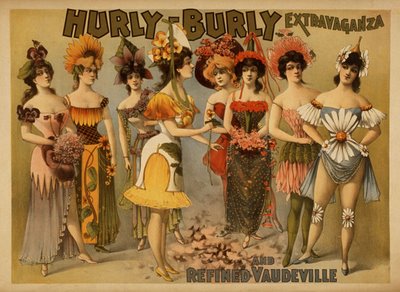
As I've observed before, vaudeville was the premier form of American entertainment for almost sixty years — longer than the era of studio-dominated filmmaking, the so-called Golden Age of Hollywood. In those years vaudeville contributed a number of expressions to the American language.
“Big time” and “small time” are expressions from vaudeville. In vaudeville parlance, managers and agents booked “time” — weeks or split weeks in a particular theater or on a circuit. The higher-paying circuits were the big time — the less prestigious circuits the small time. Big and small referred primarily to salary levels, with corresponding implications of prestige. You could also refer to “Keith time” or “Pantages time” — bookings in the Keith & Albee or Pantages theater chains.
The word “killer”, used in a positive sense, as in “a
killer app”, also comes from vaudeville. In vaudeville, an act was a killer if it was so good it
killed the audience — ruined it for the next act. “I killed 'em” or “I slayed 'em” were the ultimate boasts a performer could make, suggesting that he or she went over big but also that they made life tough for the acts that had to follow them on the bill, always an important consideration in the inherently competitive arena of variety entertainment.
You moved up the ladder in vaudeville by becoming “a hard act to follow”. You reached the top of the profession when you were an impossible act to follow.
